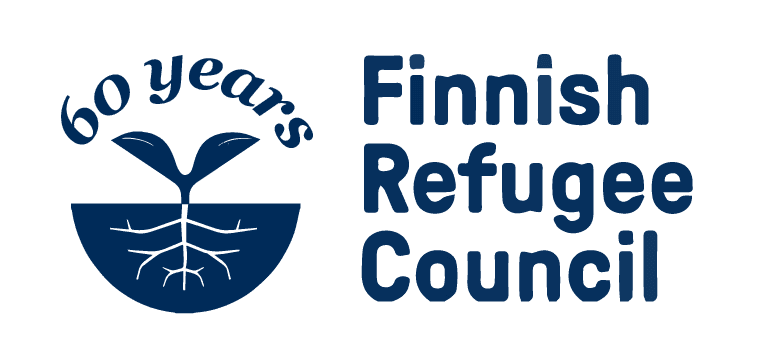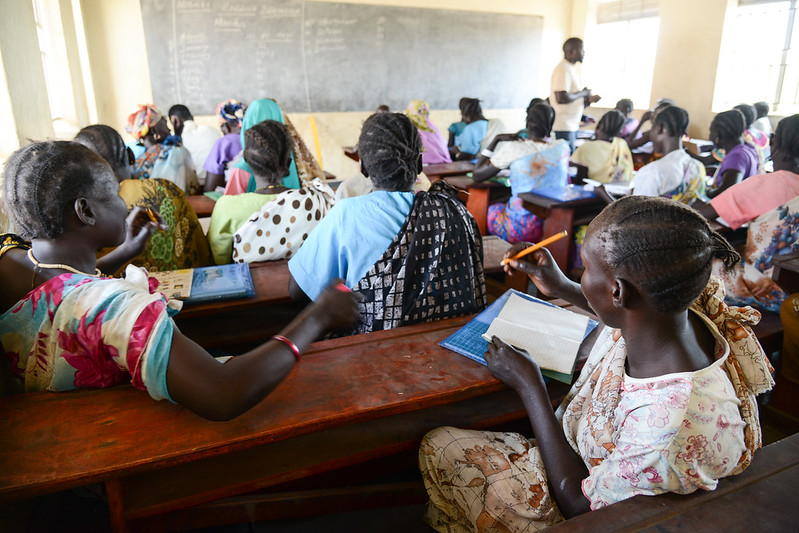Today, the 8th of September, we celebrate UN International Literacy Day. Unfortunately, learning to read is still a privilege that not everyone has access to. Illiteracy negatively affects individuals’ self-esteem and self-confidence, exposes them to health risks and lowers their life quality. Refugees are particularly vulnerable, as conflict has prevented many from accessing education.
There are an estimated 781 million illiterate or low-literate adults and young people worldwide (UNESCO). Almost two-thirds of them are women. The poor and developing countries of the Global South have the most illiterate adults, and in some parts of sub-Saharan Africa, as many as 80% of women cannot read or write.
The educational path of people affected by war, persecution and other crises is often interrupted in childhood. People also often flee countries where literacy rates are already low. Illiterate refugees are at greater risk of being exploited in everyday situations, having difficulty supporting their families and accessing information. Moreover, people living in difficult conditions in refugee camps and settlements often cannot afford to send their children to school, let alone pursue their own education.
Riek yat Wich Duel, 57, offers a great example of the importance of adult literacy and how it is never too late to learn to read. Riek comes from South Sudan, where literacy rates are among the lowest in the world: only 34% of the population can read.
Riek tragically lost two of his children in South Sudan’s brutal conflicts—one of his children was shot in the street, and his other child was killed while he was at university—which was particularly devastating for an illiterate father who had always wanted to give his children an education. An opportunity he had never had.
Riek and his family now live in one of the seven refugee camps in the Gambella region, where more than 300 000 South Sudanese have fled. Life has been hard and full of loss, but Riek feels he has got a “golden opportunity”—he has been able to study for the first time in his life by attending a literacy course run by FRC. The new skills have given the father of a large family the ability to cope better in everyday life.
“Literacy training has given me confidence, and I can already read short sentences out loud. Now that I’m able to read headlines, for example, I can understand what different texts are about, even if I wouldn’t understand everything. It makes me extremely happy, because I always had to ask others to read for me before,” Riek says happily.
Now, Riek hopes to see a time when his children can read and return to South Sudan, educated and ready to build peace.
Adult literacy benefits the whole surrounding community
FRC’s literacy training is primarily targeted at adults and young people who have dropped out of school. We provide adult functional literacy training for refugees and host communities in our countries of operation, Ethiopia, and Uganda. Our functional literacy courses are taught in the refugees’ mother tongue and in English to promote self-sufficiency and independence. At the same time, the lessons cover topics that improve everyday life, such as nutrition, hygiene, sanitation, and the environment. The aim is to integrate literacy into refugees’ daily lives.
Adult literacy training is at the heart of our work: the benefits of adult education are immense, and research shows that these benefits are widely transmitted to the community and society. Educated parents can support and encourage their children in their school path and they understand the benefits of education themselves. Literacy also increases the self-confidence and resilience of refugees and, therefore, improves self-reliance and social cohesion among the most vulnerable groups in protracted refugee crises.
Read more about our functional adult literacy training in Ethiopia and Uganda. You can support our work with adult literacy by donating.


